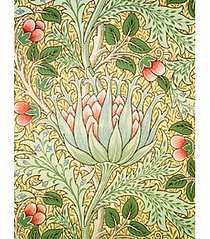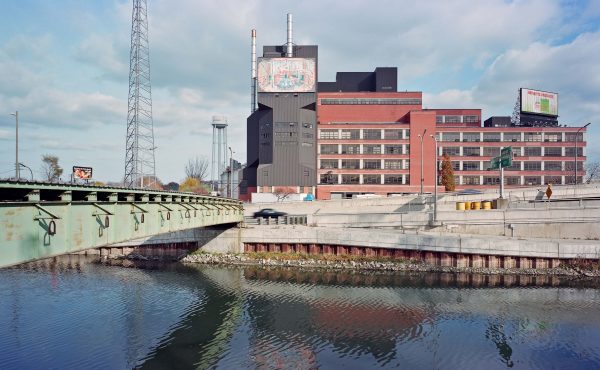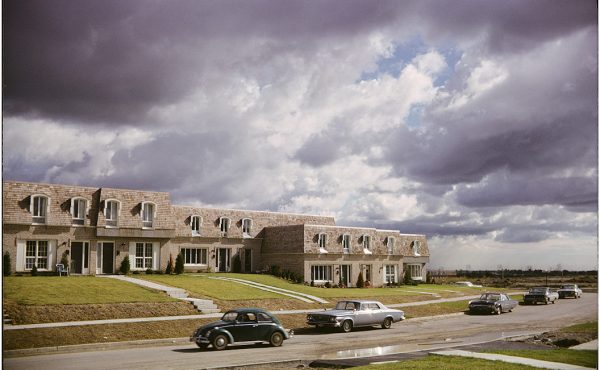

Editors Note: Spacing is pleased to be participating in the Toronto Public Library’s One Book program again this year. This month the library hopes the whole city will start reading Loyalty Management, a poetry book by Glenn Downie, set in part in the Junction neighbourhood. Throughout the month Spacing Toronto will present a series of posts exploring the book.
– – – – – – – – – – – – – – – William Morris was a designer and publisher who inspired the Arts & Crafts Movement in the later part of the nineteenth century. Morris’s designs are a reaction to the ephemeral quality of production during the Industrial Revolution and the Victorian Era. He saw hideousness and a decline in quality and aesthetic value, while others saw efficiency and an abundance of more affordable products. The house Downie is describing in the following poem was once a rooming house:
William Morris was a designer and publisher who inspired the Arts & Crafts Movement in the later part of the nineteenth century. Morris’s designs are a reaction to the ephemeral quality of production during the Industrial Revolution and the Victorian Era. He saw hideousness and a decline in quality and aesthetic value, while others saw efficiency and an abundance of more affordable products. The house Downie is describing in the following poem was once a rooming house:
Big locks on tiny rooms: tell-tale sign
of a former boarding-house
Most likely the owner and tenants would never have been able to afford Morris’s notoriously high-priced wallpapers. In the Victorian Era, many homes were converted into rooming houses for the single men who came to the city to be employed in factories or become “slaughterhouse workers” producing the very products that disgusted Morris. In the poem, instead of Morris’s famous Fruit or Honeysuckle patterns, the wall-paper scrapers find “historical graffiti” — material remnants of the era:
Date of construction
Missionaries’ signatures
Date of duplex
Doctor’s signature.
These scraps reveal so much more about the inhabitants of the rooming house Downie is describing. Though less beautiful the scrapers themselves are
Afraid to break
we add our names
to the people’s archive
before burying it again.
In other words, what they have found is just as important to them as if they had found original William Morris wallpaper they would have been compelled to preserve because of its official value. The little bits of paper and old newspapers were never meant to be saved, but they are valuable nonetheless and create a sense of continuity for the occupants of the home. I think the title of the poem is meant to be ironic. Rather than a novena, Downie highlights artifacts Morris would have disdained as wasteful products of his time. Instead, I think this poem is an expression of devotion to the house and the emotional connection the wallpaper scrapers feel to the past inhabitants.
Top photo of Walthamstow Central Tube Station, by Nicobobinus, and includes Morris inspired motifs as his birthplace was nearby. Lower photo by Yvonne (bijoux & crafts).


